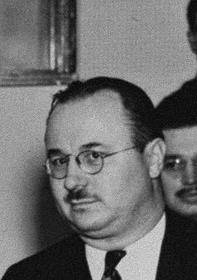The last time I wrote for Living &Growing (“God of Surprises,” April 22), I talked about an extraordinary Jewish prayer that begins “Disturb us, Adonai” and asks God to not shelter us from the winds of reality.
It turns out that there’s an Anglican prayer that begins the same way: “Disturb us, God,” but any similarity to the Jewish prayer ends there. Known as “Drake’s Prayer,” the Anglican prayer has been attributed to 16th-century explorer Sir Francis Drake. More likely it’s a modern composition that garnered an apocryphal attribution to Drake from its metaphors of exploration and discovery. The prayer’s lyrical final stanza reads:
Disturb us, Lord, to dare more boldly,
To venture on wider seas
Where storms will show your mastery;
Where losing sight of land,
We shall find the stars.
A kind of paean to adventurism, metaphorical or otherwise, the prayer has about the same spirituality as Star Trek. “Disturb us, God, and let us boldly go where no one has gone before”— a reasonable enough sentiment, I suppose, until it starts leaning toward imperialism (always the dark underside of the Federation’s disingenuous and invariably violated Prime Directive).
In any event, that’s not what’s going on in the Jewish prayer, which calls us to boldly go not where no one has gone before but where we’ve already been too many times — apathy and ignorance, injustice, war. The Jewish prayer calls us to action to repair a broken world:
Shock us, Adonai, deny to us the false Shabbat which gives us
the delusions of satisfaction amid a world of war and hatred;
Disturb us, O God, and vex us;
let not Your Shabbat be a day of torpor and slumber;
let it be a time to be stirred and spurred to action.
Adapted for use in the Reform Jewish prayer book, the prayer was originally written by Mitchell Salem Fisher, a New York City rabbi in the 1920s. At 26, after finishing his studies at the Jewish Institute for Religion, Fisher became rabbi for two congregations in upper Manhattan. But then, in early 1930, he abruptly resigned from the rabbinate.
In the resignation letter to his congregation, published in The American Hebrew on April 18, 1930, Fisher opines that preachers are constrained to enunciate anodyne ideals “so unchallenging, so completely removed from the real issues of everyday living and struggling, that these ideals become patently and utterly vain. The rabbi becomes an exalted lecturer, entertainer and institution promotion agent.”
Liberated from institutional constraints, Fisher went on to work on behalf of Jews around the world. After taking a law degree from Columbia in 1933, he went to work for the Anti-Nazi League, which in the years prior to World War 2 worked to institute a boycott of German goods and after the war successfully infiltrated and exposed the operations of the Ku Klux Klan.
He makes it clear in his letter he has not lost his faith in Judaism or organized religion: “I retain as ever … my love of Israel and Israel’s faith.” The trouble, he writes, “lies in the dreadful contrast between what the synagogue should be and can be and what the synagogue is.”
Fisher’s problem is not with religion but with the religious institutionalism that shuts out a disturbing reality and thus inhibits the fight for a more just world. His critique continues to challenge religious institutions: how to remain organized and coherent without succumbing to a dogmatic and inevitably illiberal atrophy?
Reform Judaism’s solution is to promote the freedom of our critical intelligence to question everything, even the Torah. Reform Jews note that Judaism has challenged institutionalism literally from the beginning, in the Book of Genesis, when Abraham successfully argues with God to not be so severe: “Shall not the judge of all the earth deal justly?”
In Fisher’s prayer we hear the voice of Abraham again, reminding us that holiness is a struggle for justice, and the great purpose of religion is to give us the hope and courage we need to venture out into the winds beyond the temple walls — not to discover new stars but to improve people’s lives.
• Not himself Jewish, Jim Hale is nonetheless a wholehearted student of Judaism and Jewish culture. This column is part of a longer essay that has been accepted for presentation at the Ninth Annual Religion and Spirituality in Society conference in April 2019 at Granada, Spain. “Living & Growing” is a weekly column written by different authors and submitted by local clergy and spiritual leaders.

